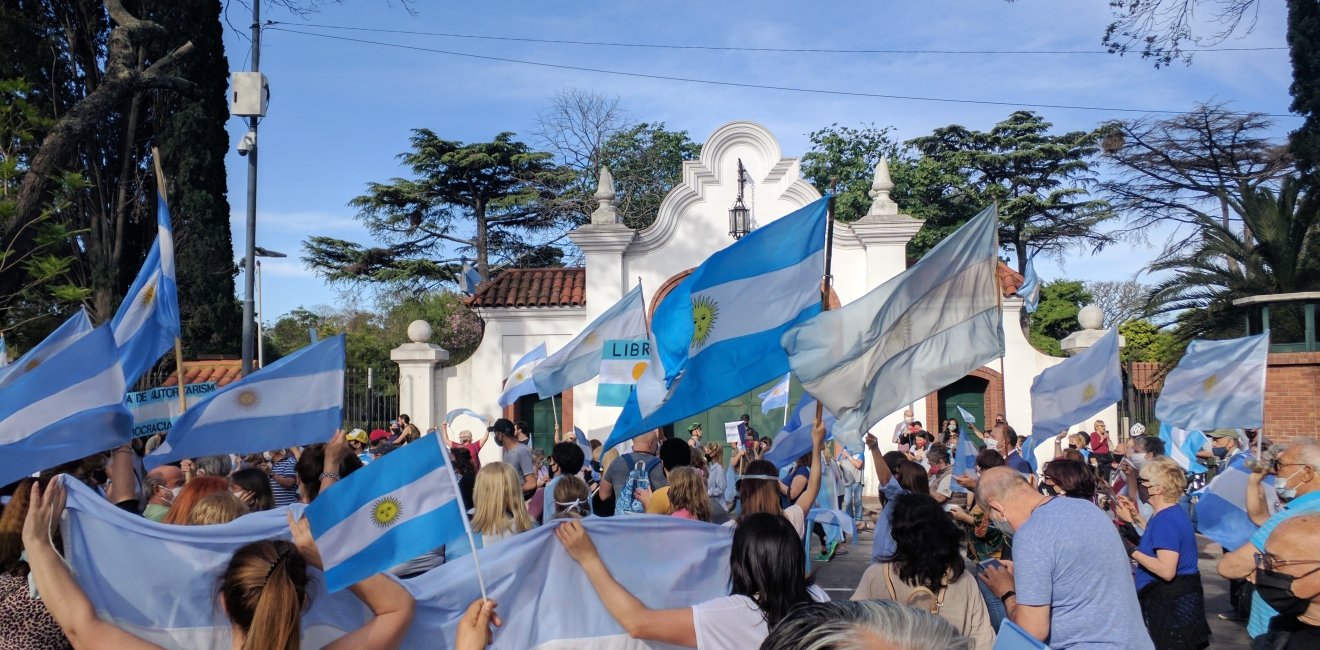Elections in Argentina: What is at Stake for Brazil?
Eurasia Group's Luciano Sigalov discusses the upcoming presidential election in Argentina and its potential impacts on Brazil-Argentina relations, Mercosur, and South American multilateralism.

A blog of the Brazil Institute
Eurasia Group's Luciano Sigalov discusses the upcoming presidential election in Argentina and its potential impacts on Brazil-Argentina relations, Mercosur, and South American multilateralism.

From a policy perspective, the key question is whether the next administration will implement a comprehensive stabilization program to lower inflation, similar to past experiences in the 1980s and the 1990s, or if it will attempt a very risky road of dollarizing the economy. To some extent Together for Change Patricia Bullrich and Peronist Sergio Massa propose variants of the first option, while libertarian Javier Milei advocates for the latter, arguing that Argentine’s destroyed confidence in the peso has gone beyond the returning point. All candidates agree on the need to lower the country’s large fiscal deficit but there are differences in undertaking sizable and unpopular adjustments.
From a voter perspective, this is an election of change, given widespread discontent not only with President Alberto Fernadez, who is very unpopular, but also with the political class as a whole. The country has failed to grow over the last decade, and inflation is out of control. Milei has been able to capture this ever-increasing public disenchantment as he lashes against all political parties. At the same time, his dollarization proposals sound increasingly attractive to many who see the value of their pesos evaporating rapidly.”
If Milei wins, his attacks toward Lula -as well as his praises to Bolsonaro- point to a significant deterioration of the bilateral relation and will add risks to the ratification of the Mercosur-EU deal. The animosity between Milei and Lula hints to a bilateral relation that will be primarily managed through diplomatic channels, as was the case with Bolsonaro and Fernandez. If Bullrich wins, despite her fairly right-wing credentials, she will have pragmatic approach to Brazil and reassure assuring continuity of Argentina in Mercosur to which the Lula administration would also be diplomatically open. A Massa administration would not differ much from current policy and would seek to further deepen ties with Brazil.”
If Milei wins presidency, though his focus will be on domestic politics, he could increase risks to the ratification of the Mercosur-EU deal. While a Milei administration may not have the authority to remove Argentina from the bloc, it could refuse to cooperate in signing the EU-Mercosur deal. Circumstances will probably force him to moderate given the importance of Brazil for Argentina’s trade balance and local industry.
Milei will surely leave behind Kirchnerist administrations rhetoric in favor for Latin American integration and cooperation as he looks to strengthen ties with the US and Israel, while he tries to advance a free trade agenda. If Bullrich comes to office, she will also look to deepen ties with US and Western democracies, though she will not adopt an ideological stance toward China nor put into question the country’s continuity in Mercosur; indeed, she is an advocate of finalizing the EU-Mercosur deal and explore new FTA. Massa will aim to maintain good ties with neighboring countries, but he will probably also look for new trading partners.”


The Brazil Institute—the only country-specific policy institution focused on Brazil in Washington—aims to deepen understanding of Brazil’s complex landscape and strengthen relations between Brazilian and US institutions across all sectors. Read more


The Wilson Center’s prestigious Latin America Program provides non-partisan expertise to a broad community of decision makers in the United States and Latin America on critical policy issues facing the Hemisphere. The Program provides insightful and actionable research for policymakers, private sector leaders, journalists, and public intellectuals in the United States and Latin America. To bridge the gap between scholarship and policy action, it fosters new inquiry, sponsors high-level public and private meetings among multiple stakeholders, and explores policy options to improve outcomes for citizens throughout the Americas. Drawing on the Wilson Center’s strength as the nation’s key non-partisan policy forum, the Program serves as a trusted source of analysis and a vital point of contact between the worlds of scholarship and action. Read more


